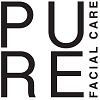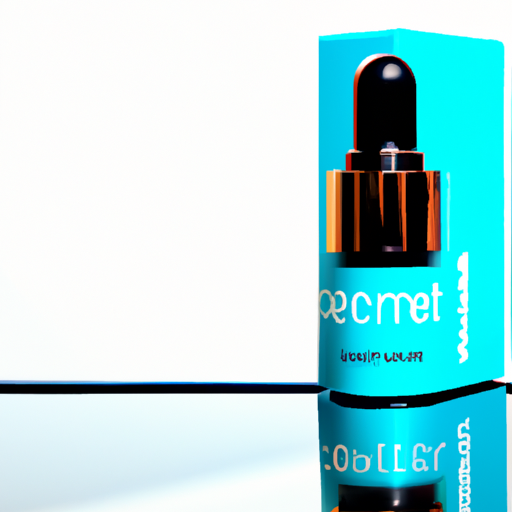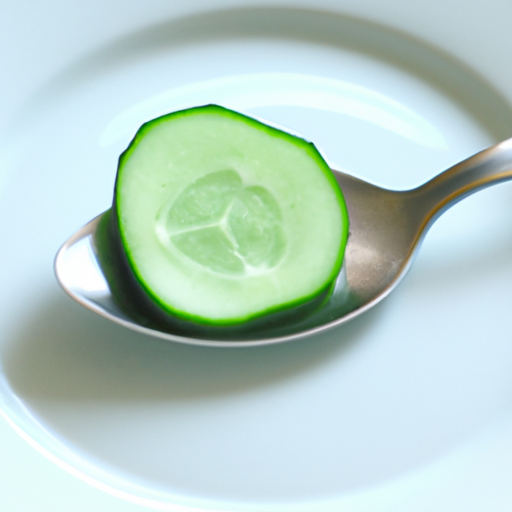Are you tired of seeing those pesky wrinkles and fine lines when you look in the mirror? Well, fear not, because there are simple and effective ways for women to minimise these signs of ageing. From adopting a consistent skincare routine and incorporating specific ingredients into your products, you can say goodbye to those unwanted wrinkles and hello to smoother and more youthful-looking skin. With a little know-how and some dedication, you’ll be on your way to achieving a more youthful and radiant complexion.
Table of Contents
ToggleEat a Healthy Diet
Eating a healthy diet plays a critical role in maintaining the health and appearance of your skin. One way to do this is by including antioxidant-rich foods in your daily meals. Antioxidants help protect your skin from damage caused by free radicals, which are unstable molecules that can lead to premature aging. You can find antioxidants in a variety of fruits and vegetables, such as blueberries, strawberries, kale, spinach, and broccoli.
Another important component of a healthy diet for your skin is consuming foods high in omega-3 fatty acids. Omega-3 fatty acids have been shown to reduce inflammation in the body, which can help minimise the appearance of wrinkles and fine lines. You can find omega-3 fatty acids in fish, such as salmon and mackerel, as well as in walnuts and chia seeds.
Lastly, staying hydrated is key for maintaining healthy skin. When your body is properly hydrated, it helps your skin maintain its elasticity and allows for proper cell turnover. Make sure to drink plenty of water throughout the day to keep your skin hydrated and glowing.
Protect Your Skin from the Sun
Protecting your skin from the harmful effects of the sun is essential in preventing wrinkles and fine lines. One of the easiest and most effective ways to do this is by applying sunscreen daily. Choose a broad-spectrum sunscreen with a high SPF, and make sure to apply it generously to your face and exposed areas of skin. Don’t forget to reapply every two hours, especially if you’re spending time outdoors or in direct sunlight.
In addition to sunscreen, wearing protective clothing and accessories can further shield your skin from the sun’s harmful rays. Opt for lightweight, long-sleeved shirts and pants made from sun-protective fabrics. Don’t forget to wear a wide-brimmed hat to protect your face and neck and a pair of sunglasses to shield your eyes and the delicate skin around them.
Lastly, seek shade during peak sun hours, typically between 10am and 4pm. If possible, plan outdoor activities for earlier or later in the day to reduce your sun exposure. This simple step can greatly reduce the amount of damage caused by the sun and help prevent the formation of wrinkles and fine lines.
Adopt a Good Skincare Routine
Establishing a good skincare routine is essential for minimising wrinkles and fine lines. Start by cleansing your skin twice daily to remove dirt, excess oil, and impurities that can clog your pores and contribute to the formation of wrinkles. Choose a gentle cleanser that suits your skin type and massage it onto your face using circular motions. Rinse thoroughly with lukewarm water and pat dry with a clean towel.
Using anti-ageing products can also help combat the signs of ageing. Look for products that contain ingredients like retinol, hyaluronic acid, and peptides, as these have been shown to help reduce the appearance of wrinkles and fine lines. Apply these products after cleansing your skin and follow with a moisturiser to lock in hydration.
Exfoliating regularly is another important step in your skincare routine. Exfoliation helps remove dead skin cells, which can make your skin look dull and contribute to the formation of wrinkles. Choose a gentle exfoliant and use it two to three times a week. Be sure to follow with a hydrating moisturiser to replenish your skin.
Stay Hydrated
Drinking plenty of water is not only important for your overall health but also for the health and appearance of your skin. When you’re properly hydrated, your skin becomes more supple and plump, reducing the visibility of wrinkles and fine lines. Aim to drink at least eight glasses of water a day, or more if you’re physically active or live in a dry climate.
Using humidifiers in your home can also help keep your skin hydrated, especially during the winter months when the air is dry. Humidifiers add moisture to the air, which in turn helps prevent moisture loss from your skin. Place a humidifier in your bedroom or the areas of your home where you spend the most time.
While enjoying a glass of wine or a cup of coffee can be a treat, excessive alcohol and caffeine consumption can dehydrate your skin and contribute to the formation of wrinkles. Try to limit your intake of these beverages and opt for water or herbal tea instead. Your skin will thank you.
Get Enough Sleep
Getting enough sleep is crucial for the health and appearance of your skin. When you’re sleep-deprived, your body produces higher levels of the stress hormone cortisol, which can lead to increased inflammation and break down collagen, the protein that keeps your skin firm and supple. To ensure you’re getting enough sleep, establish a bedtime routine that includes winding down before bed. Avoid looking at screens, such as your phone or computer, at least one hour before sleep, as the blue light emitted from these devices can disrupt your sleep patterns.
Investing in a good mattress and pillows can also make a big difference in the quality of your sleep. Look for a mattress that provides proper support for your body and choose pillows that align with your sleep position. This will help prevent the development of sleep lines and give your skin the opportunity to repair and rejuvenate itself overnight.
Stress can negatively impact your sleep quality and contribute to the formation of wrinkles and fine lines. Take steps to manage your stress levels through techniques such as exercise, meditation, or engaging in activities you enjoy. If you find that stress is becoming overwhelming, seek professional support from a therapist or counsellor who can provide guidance and help you develop effective stress management strategies.
Quit Smoking
Smoking not only poses significant health risks but also has detrimental effects on the skin. The chemicals in cigarettes can narrow the blood vessels in your skin, reducing blood flow and depleting essential nutrients and oxygen. This can lead to premature ageing, including the formation of wrinkles and fine lines. Quitting smoking is one of the best things you can do for your overall health and the appearance of your skin.
To quit smoking, it’s important to understand the effects it has on your skin and motivation to quit. Educate yourself about the negative impact smoking has on your skin’s health and appearance, including the increased risk of wrinkles, sagging, and a dull complexion. This knowledge can serve as a strong motivator to quit.
Seeking professional help to quit smoking can greatly increase your chances of success. Your healthcare provider can offer guidance and support, and there are also various smoking cessation programmes and resources available. Additionally, it’s important to avoid exposure to secondhand smoke, as it can have similar effects on your skin and overall health.
Avoid Excessive Alcohol Consumption
While enjoying a drink with friends can be a part of a social life, excessive alcohol consumption can have negative effects on your skin. Alcohol is a diuretic, meaning it increases urine production and can dehydrate your skin. Dehydrated skin is more prone to wrinkles and fine lines, so it’s important to limit your alcohol intake.
Moderation is key when it comes to alcohol consumption. Set limits for yourself and be mindful of how much and how often you’re drinking. Opt for non-alcoholic alternatives, such as mocktails or infused water, to reduce your alcohol intake.
If you find that you’re struggling to control your alcohol consumption or if it’s negatively impacting your life, it may be time to seek help. There are various resources and support groups available to assist you in overcoming alcohol addiction and regaining control of your health and wellbeing.
Manage Stress Levels
Chronic stress can take a toll on your skin, leading to the formation of wrinkles and fine lines. It’s important to find ways to manage and reduce stress in your daily life. Practicing stress-reducing techniques such as deep breathing exercises, yoga, or meditation can help calm your mind and lower your stress levels.
Engaging in relaxation exercises can also be beneficial for both your mental health and your skin. Try activities such as taking a warm bath, reading a book, listening to calming music, or spending time in nature. Find what works best for you and make it a priority to incorporate these activities into your routine.
If you find that stress is becoming overwhelming and affecting your daily life, don’t hesitate to seek professional support. A therapist or counsellor can provide guidance and help you develop effective stress management strategies to improve your overall well-being.
Protect Your Skin during Sleep
Protecting your skin during sleep hours can play a significant role in minimising wrinkles and fine lines. Using silk or satin pillowcases is a great way to reduce friction between your skin and the fabric, which can lead to the formation of sleep lines. Silk and satin are also less absorbent than cotton, allowing your skin to retain more moisture and reducing the risk of dehydration.
Applying a moisturiser before bed is another important step in protecting your skin while you sleep. Choose a night cream or a moisturiser specifically formulated for nighttime use, as these are typically richer and more nourishing than daytime moisturisers. The moisturiser will help lock in hydration and provide essential nutrients to your skin as you sleep.
Additionally, try to avoid sleeping on your side or stomach, as this can contribute to the formation of sleep lines and wrinkles. Sleeping on your back is the best position for minimising sleep lines and preserving your skin’s smoothness. If you find it difficult to adjust your sleep position, try using a specialised pillow designed to minimise pressure on your face and reduce the risk of sleep lines.
Consider Medical Treatments
If you’re looking to minimise wrinkles and fine lines, consider consulting with a dermatologist. A dermatologist can assess your skin’s condition and recommend appropriate medical treatments that suit your individual needs.
Prescription treatments, such as retinoids, can be effective in reducing the appearance of wrinkles and fine lines. These topical medications work by increasing cell turnover and stimulating collagen production, resulting in smoother, younger-looking skin. Your dermatologist can advise you on the best retinoid option for your skin type and provide instructions on proper usage to achieve optimal results.
Non-invasive procedures, such as laser resurfacing or chemical peels, can also be considered to minimise wrinkles and fine lines. These treatments work by removing the top layers of damaged skin, stimulating collagen production, and promoting skin rejuvenation. A dermatologist can explain the benefits and risks of these procedures and help you decide which option is most suitable for you.
In conclusion, minimising wrinkles and fine lines requires a comprehensive approach that includes adopting healthy lifestyle habits and incorporating an effective skincare routine. By following these tips and taking care of your skin, you can maintain a youthful and radiant complexion for years to come. Remember, prevention is key, so start implementing these practices today for long-term skin health.






